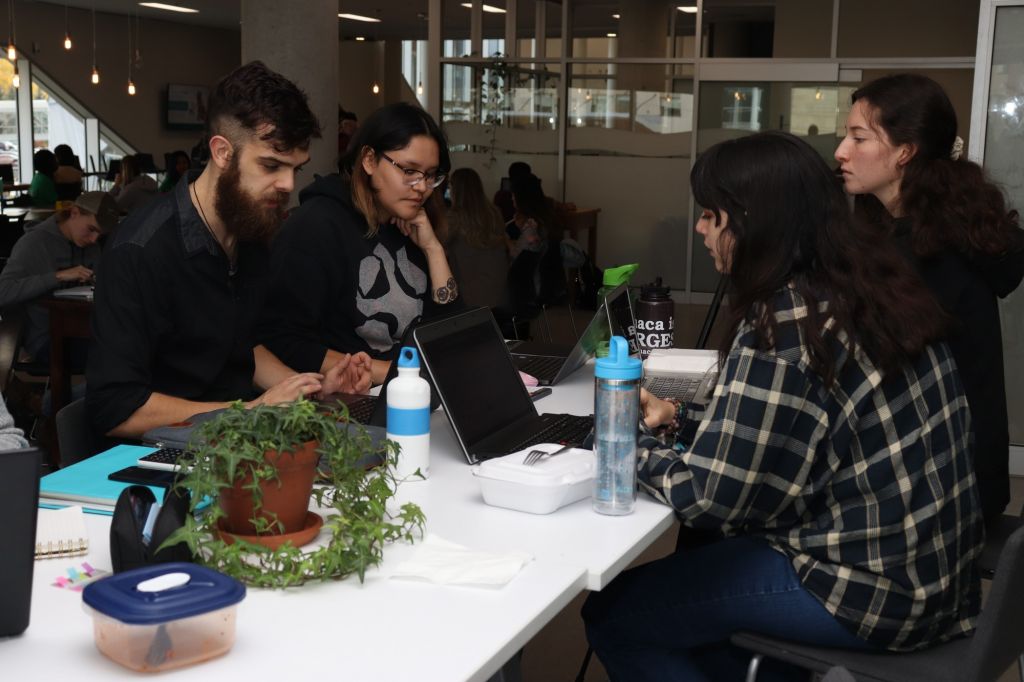A group of four students met in the Algonquin Student Commons on Tuesday, Oct. 29, to discuss the new campus sustainability initiative that they are in the process of developing.
Sitting around a long table with their reusable water bottles and a small potted plant, they poured over their agendas on laptops and notepads. The group systematically reviewed one issue after another, working through the growing pains of starting a new student organization.
The first order of business was what to call themselves. They eventually agreed upon Sustainable Campus Council.
The council was started by students in the environmental studies program after their environmental citizenship professor, Mark Brooks, told them in class about a grant opportunity offered by the World Wildlife Foundation’s Living Planet @ Campus program.
“We met after class and started bringing up ideas,” said co-founder Lisa Lake. “What were we concerned with, what kind of ideas we have as individuals and what we can do together as a group.”
Her classmate, Jordan Morlidge said they applied for the grant in mid-October and a response is expected in a few months. Before they applied, they studied what other schools were doing in their funding applications.
“Schools across Canada have gotten funds for starting community gardens, beehives and other nature-specific projects at their campuses,” said Morlidge. “So, we started thinking about what we could do with our lump of money.”
They settled on a zero-waste initiative to reduce the use of single-use paper and plastic across campus and get a better idea about how students and staff are disposing of these items.
“This includes the utensils that we use when we’re buying food in the cafeteria,” said member Rylan Campbell. “Where do most of those utensils go? Do a majority of the utensils go into the recycling? Do they go into the garbage?”
The council also wants to work with faculty and students at the college to build a composting system on campus. They would like to use the compost collected to create a community garden and offer the compost to other community gardens in the surrounding area.
Although Professor Brooks planted the seed for idea, he was surprised to hear that the students had already applied for funding and decided on a focus for their new group.
Brooks, who also worked with WWF Canada, said that the organization is trying to facilitate these kinds of groups on campuses, but it isn’t the first time Algonquin has had a group focused on sustainability issues.
A few years ago, there had been a group called Earth Allies, but it only lasted for a year and disappeared when the founding students finished their studies.
“It’s this problem of continuation from year in to year out,” said Brooks, which is difficult in a one-year program.
“What’s key is funding,” said Brooks. “If you could become an official student club with a name, then we could start to seek out annual appropriations funding on a regular basis.
“So, when students come into the program each year I can say, ‘There’s a student group on campus that already exists and it’s already funded.’”
The Sustainable Campus Council is looking at what it would take to get that official club status and are planning to contact the Students’ Association in the near future.


